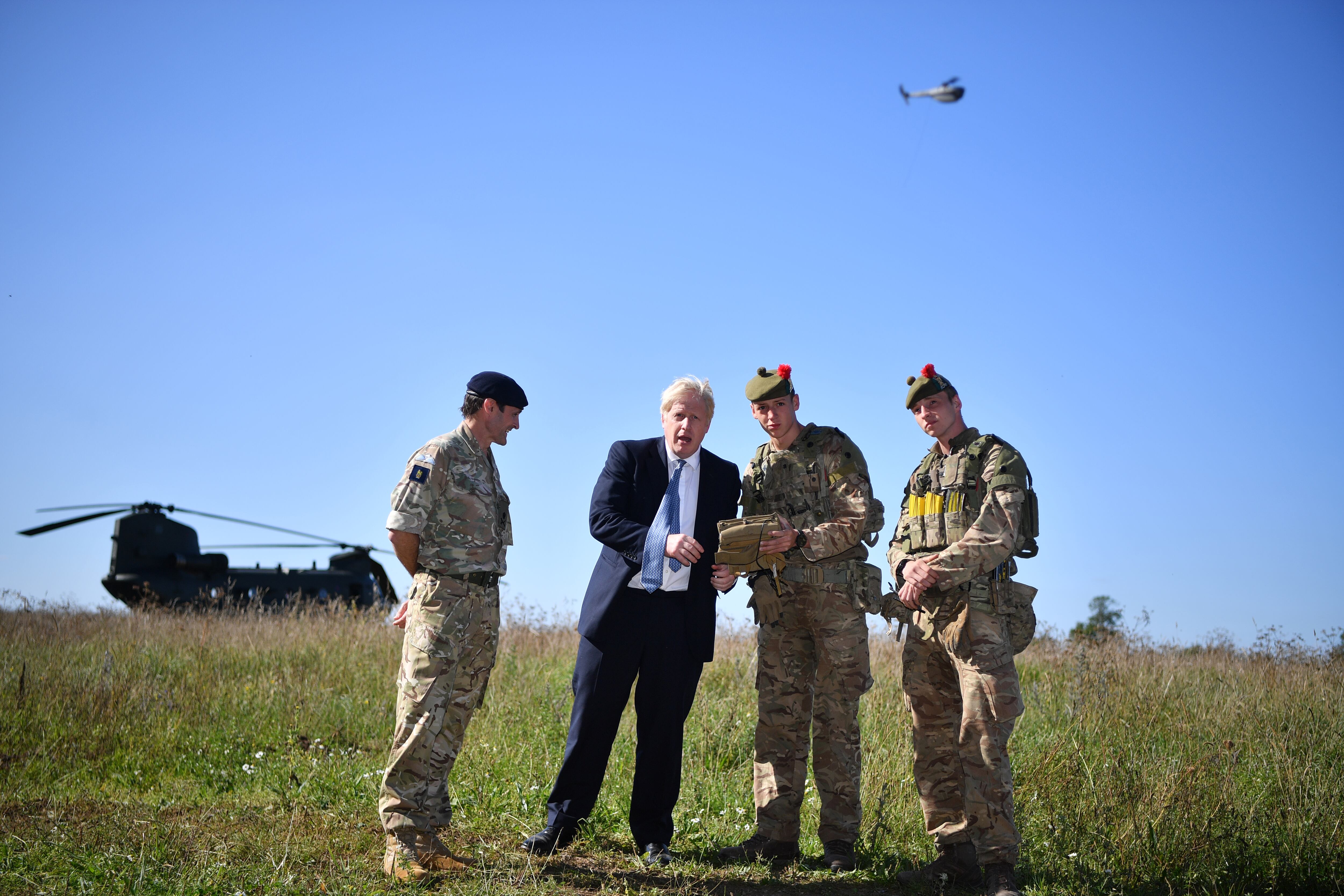LONDON – Britain's top military officer says any future defense review needs to be upfront about the state of the military, taking stock of the risks in readiness and resilience previously taken for the sake of efficiency gains.
“A defense review will need to be honest about the true state of our forces. This involves mobilizing ourselves to improve readiness and enhance resilience; to protect our critical national infrastructure; and to think laterally about how to outmaneuver our opponents and communicate our actions,” Chief of the Defence Staff Gen. Nick Carter said during his annual speech to the Royal United Services Institute Dec 6.
“Our starting point for a review should be a proper assessment of the threat, and this should take the form of a net assessment that determines where our current trajectory will take us in 2030 relative to those of our competitors. We might deduce from this that our approach to deterrence needs updating, for the form of authoritarian political warfare that we are confronted with requires a more dynamic approach,” he said.
Both the Conservative and Labour parties have committed to hold a defense review if they win next week’s general election. It’s not guaranteed, but in theory 2020 would be the most likely time frame in the current quinquennial cycle for such an assessment.
The 2010 strategic defense and security review slashed military capabilities in order to balance the budget, and while some of that equipment was replaced in the 2015 review funding was dependent on finding significant efficiencies elsewhere in the armed forces. That’s a requirement which has posed a major challenge.
Britain’s armed forces have been in the grip of constant budget pressures since the end of the Cold War, and the efficiency initiatives mentioned by Carter have often been used to mask issues like reductions in weapon stockpiles.
RELATED

Earlier this year the then-Defence Secretary Penny Mordaunt highlighted the obsolescence of much of the British Army’s armored-vehicles fleet.
Last week RUSI claimed lack of modern artillery would see the British military facing defeat in any fight with the Russians.
“What worked for the predictability of stabilization and counterinsurgency operations in the last 20 years or so won’t work in today’s context,” said Britain’s top soldier. “The efficiency initiatives of the last 25 years have taken risk against readiness and resilience. We have looked to optimize our logistic infrastructure, reduce inventory, rationalize stock, and outsource whatever we can to industry.”
Carter said the drive for efficiency has posed a number of questions that the next government will need to answer in any upcoming defense and security review.
“Do we know what ‘just-in-time logistics’ has done to our supply chains? Have we assured sovereign capability where we need it? Has our competitive procurement process shared risk with our suppliers as well as it might for our support solutions? And how do we improve the availability of our key platforms?” he asked an audience of leading defense sector personnel.
Carter said the military will hold an exercise next year to assess the impact on industry of mobilizing reserve forces.
With the general election just days away, the defense chief avoided mentioning the budget required to fund any future significant shift in military capacity.
Small, above-inflation rises have been promised by the Conservatives but that’s unlikely to be sufficient by itself to fund requirements.
The parliamentary Defence Select Committee has argued for some time that Britain needs to invest 3 percent of its gross domestic product in defense, rather than the 2 percent it currently does to meet its NATO commitments.
Alexandra Ashborne-Walmsley, of London defense consultants ASC, said she was surprised so close to the election that the Chief of the Defence Staff presented such a detailed view of what he was looking for in the next strategic evaluation.
RELATED

“He has clearly given the matter considerable thought and is examining the UK’s future security needs with a much broader perspective and a multiplicity of domains than has been done in some previous defense reviews,” she said. “It’s not going to be just about numbers of ships, tanks and planes.”
There’s no shortage of ideas on where to where Carter would like spend his modernization money, particularly in the area of battlespace connectivity and ever more sophisticated networks of systems.
“We need better intelligence and warning to inform genuine insight and understanding, and therefore further investment in persistent and forward engagement to establish networks, identify opportunities and develop relationships with allies and partners,” he said.
“Modernization will require us to embrace information-centric technologies, recognizing that it will be the application of combinations of technology like processing power, connectivity, machine learning and artificial intelligence, automation, autonomy and quantum computing that will achieve the disruptive effect we need,” he added.
Carter said the review “requires a strategic response that integrates all the levers of national power – a ‘fusion’ approach that brings coherence and consistency to our UK strategy.”
Conservative leader Boris Johnson made a similar point in his defense review statement last week by announcing the intention to fuse defense, security and foreign policy together in any future strategic update.
The British general also said a review should also include defense-industry considerations.
“This would look across the defense and security sectors to identify how we can enhance our strategic approach to ensure we have competitive, innovative and world-class defense and security industries that drive investment and prosperity as well as underpinning national security. Research and development must feature in this, too – we must embrace open, outwardly facing innovation – in recognition that nobody does it all in-house any longer,” he said.
Andrew Chuter is the United Kingdom correspondent for Defense News.








